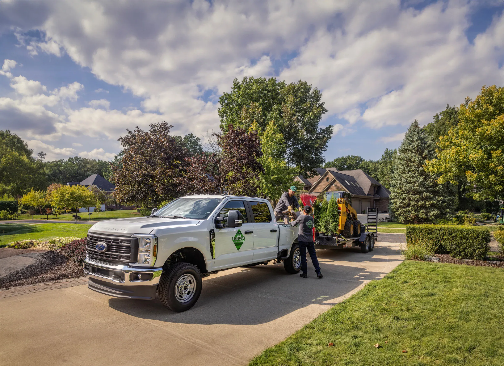

Vincentric’s annual Best Fleet Value in America Awards are among the most data-driven recognitions in the commercial vehicle industry. Each year, Vincentric evaluates nearly 3,000 vehicle configurations using eight cost-of-ownership metrics: depreciation, fees and taxes, financing, fuel, insurance, maintenance, repairs, and opportunity cost. These figures are analyzed across all 50 states and the District of Columbia, creating 28 different lifecycle scenarios that simulate real-world fleet use. The goal is to determine which vehicles offer the lowest overall fleet cost in each segment. This analysis provides fleet operators with critical insights into long-term value beyond the sticker price.
Ford Pro’s Strong Showing
At the 19th edition of the awards, which evaluated 2024 model year vehicles and were announced in April 2024, Ford Pro emerged as a dominant force. The brand won eight fleet segment awards—twice as many as any other manufacturer—reinforcing Ford’s reputation for building commercial vehicles that not only perform but also make strong financial sense over the life of a fleet vehicle. These wins highlight Ford’s ability to balance upfront pricing with ongoing operational efficiency, maintenance ease, and overall durability.
Truck and Van Category Highlights
Ford Pro swept both the truck and van categories, taking home all eight awards in these two essential commercial segments. Among trucks, the 2024 Ford Maverick XL SuperCrew FWD led the small pickup class, marking its third consecutive win. The all-electric 2024 Ford F-150 Lightning Pro SuperCrew 4WD won the full-size ½-ton pickup category, achieving its ninth Vincentric fleet award overall. In the heavy-duty arena, the 2024 Ford F-250 XL Regular Cab 2WD and 2024 Ford F-350 XL Regular Cab 2WD SRW took home awards in the ¾-ton and 1-ton segments, respectively. Notably, the F-350 earned its fifth consecutive title and eighth win overall, showcasing long-standing excellence in this category.
In the van market, Ford repeated this dominance. The Transit family took the top spot in three separate classes: the ½-ton Transit 150, the ¾-ton Transit 250, and the 1-ton Transit 350. These wins were fueled by a mix of cost-effective fuel use, low maintenance needs, and strong resale value. Additionally, the all-electric E-Transit 350 Base Cargo Van Low Roof 130" WB secured its third straight win. The 1-ton Transit 350 XLT Passenger Van also earned recognition, taking home its third Vincentric title and second in a row. Together, these awards underline the strength and depth of the Transit lineup for both cargo and passenger applications.
What Sets Ford Apart
Ford’s edge in the Vincentric rankings stems from consistent cost savings across multiple areas. The F-350 XL, for example, offered the lowest insurance costs in its class, while the E-Transit posted best-in-class figures for fuel, maintenance, and overall operating costs. These strengths are not limited to isolated factors—they demonstrate Ford’s commitment to minimizing total ownership costs for fleet buyers across the board.
A major contributor to Ford's current success is its growing portfolio of electrified models. The fact that four of Ford’s eight awards went to electric or hybrid vehicles—like the E-Transit and the F-150 Lightning—shows that electrification is not just about environmental goals. It’s also proving to be a cost-effective solution for fleets concerned with long-term budgeting and operational efficiency. The Maverick, which offers a hybrid powertrain, also demonstrates the practicality of low-emission models in compact truck segments.
Fleet Value and Practical Benefits
For fleet managers, the bottom line often hinges on more than just MSRP—it’s about total lifecycle costs. Ford’s high marks in areas like depreciation, fuel economy, insurance, and maintenance directly support those operational goals. These vehicles reduce total cost of ownership while delivering reliability, utility, and strong residual values, making them attractive options for businesses of all sizes.
Durability also plays a key role. Ford points out that 99% of Transits sold in the past decade are still in service. That figure speaks volumes about the long-term value and dependability of the Transit platform. Built at the Kansas City Assembly Plant, more than 1.2 million Transit vans have rolled off the line since 2014, giving fleet operators plenty of real-world evidence to support their investment.
Recognition Backed by Data
Ford Pro executives view these awards as a validation of their customer-first design philosophy. According to Tim Baughman, general manager of Ford Pro North America, the company’s consistent success in fleet-value rankings reflects its focus on building vehicles that meet the needs of businesses—especially when it comes to reliability, cost efficiency, and electrification. David Wurster, president of Vincentric, echoed this by noting that fleet professionals across the country rely on these awards to inform their purchasing decisions, making the recognition both credible and influential.
Looking ahead, the momentum behind Ford Pro’s electrification efforts is likely to continue shaping the commercial landscape. As more businesses look for ways to cut operating costs and reduce emissions, vehicles like the E-Transit and F-150 Lightning are positioned to meet those goals without compromising on power or capability. With its broad mix of traditional, hybrid, and electric models, Ford Pro is well equipped to remain a leader in fleet value for years to come.